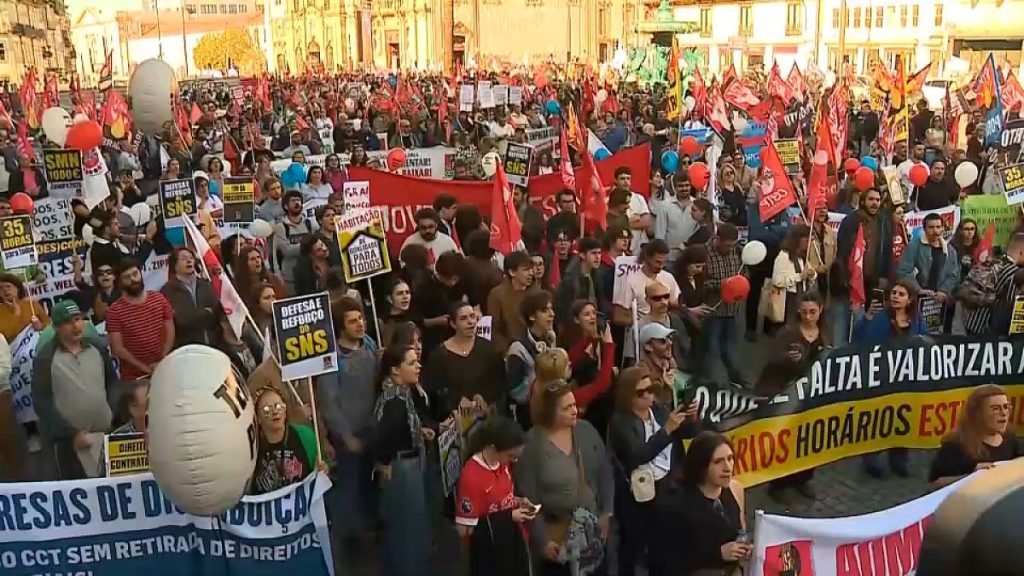Thousands of workers in Portugal have taken to the streets in protests organized by the General Confederation of the Portuguese Workers (CGTP) to demand higher wages, pensions, and improvements to social services. The protests occurred in Porto and Lisbon and were part of a month of activism under the banner ‘Increase Salaries and Pensions, Solve the Country’s Problems’. The Secretary General of the CGTP highlighted the day-to-day struggles faced by workers due to political decisions, unaffordable housing, and limited access to healthcare. One protester in Lisbon expressed frustration over the distribution of wealth in the country, while another in Porto lamented the lack of opportunities despite having a university degree.
Portugal is considered one of Western Europe’s poorest countries, with official data indicating that over half of the workforce earns less than €1,000 per month. The current minimum wage in Portugal is €820 per month, and the government has proposed raising it by €50 each year until it reaches €1,020 in 2028. However, Portugal’s minimum wage remains significantly lower than those of its European Union counterparts. Among the 22 member states with a minimum wage, Portugal ranks twelfth on the list. Countries with the highest minimum wages in the EU include Luxembourg at €2,204, Ireland at €1,840, the Netherlands at €1,829, Belgium at €1,774, Germany at €1,761, and France at €1,550.
Recent protests in Portugal have been fueled by a sense of economic disparity and a desire for fairer distribution of wealth to benefit workers who contribute to the country’s economy on a daily basis. The CGTP has criticized a deal between the government, the General Union of Workers (UGT), and four employer confederations to increase the minimum wage to €870 by 2025, excluding CGTP members from the negotiations. The protesters have emphasized the importance of addressing issues such as housing affordability and healthcare accessibility to improve the quality of life for workers across Portugal. The demonstrations serve as a call to action for policymakers to prioritize the economic well-being of the country’s workforce.
The protests in Portugal have brought attention to the challenges faced by workers in the country, including low wages, inadequate pensions, and insufficient social services. The disparities between Portugal’s minimum wage and those of other EU member states underscore the need for greater economic equality and improved conditions for workers. As demonstrators continue to demand fairer wages and improved living standards, there is a growing sense of urgency for policymakers to address the root causes of economic inequality and ensure that all workers have access to decent wages, pensions, and social services. By mobilizing for social and economic justice, workers in Portugal are advocating for a more equitable and inclusive society that prioritizes the well-being of all its citizens.













